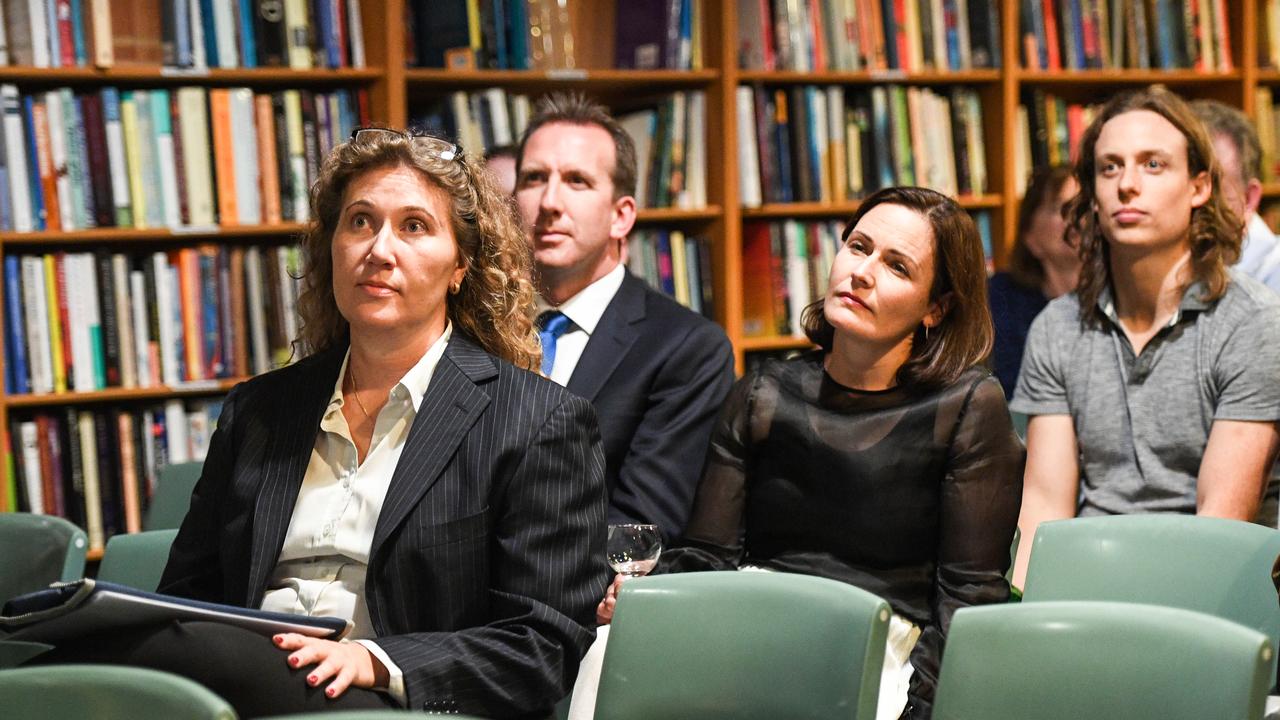Why is Labor hellbent on trashing religious schools’ ethos?
The ALRC recommendations, embraced by the Albanese government, will basically trash the notion of independence of thought and action of school governance.

I am grateful to no longer have the responsibility of educating young children. Mine were educated in a mixture of schools, Catholic systemic when they were young, and Catholic non-systemic and state schools when they were older. My philosophy on education has always been that different horses require different courses. This, in somewhat simplistic terms, is what we are fortunate to enjoy in Australia with a mix of state and private schooling.
Since the state aid battles of the 1960s there has been a settlement in this country that acknowledges the vital importance of parental choice in the education of children.
However, that choice effectively will disappear if the Australian Law Reform Commission’s recommendations on anti-discrimination in line with the wishes of the Albanese government become law. By removing the exemptions, which govern student behaviour and hiring of teachers that give a school its special character and ethos, there will be no difference between a state school and a religious school. Considering that more than a third of all Australian children are being educated outside state systems – overwhelmingly in religious schools – this means the government is effectively ignoring the wishes of a third of Australian parents.

Often children and their parents don’t share the specific religious teachings of the school, but they agree with the fundamental ethos of that religion. Consequently, in many Catholic schools there are large numbers of non-Catholics who have been enrolled because their parents agree with the underlying ethical principles manifest in the school. The Catholic schools are the largest non-government sector but the fastest growing is low-fee Christian schools. Lately there are bigger numbers of Islamic and Jewish schools. So it is puzzling that the government seems hellbent on depriving a large bloc of parents of the choice enjoyed in this country for over a generation.
There are several important aspects of the ALRC recommendations, which basically trash the notion of independence of thought and action of school governance, and hinder the manifestation of religious ethos in a school.
The main one is preventing the school from being able to discriminate positively in favour of hiring co-religionists. Despite the ALRC paying lip service to maintaining the “faith community”, a hiring policy that does not account for preferential hiring of teachers who maintain and live in accordance with the underlying principles that govern the school’s outlook will fragment that faith community, not strengthen it.
Second, the Trojan Horse for removing the exemptions, the operation of the Sex Discrimination Act, is the commission’s sole obsession and wholly unnecessary. Most religious schools do not discriminate against teachers or students who are gay or lesbian unless they make it clear they are actively opposed to the teachings of the church. In fact the church teaches pastoral care for all people, gay or straight. So why do it? Answer: to put the squeeze on religious education.
In practice, the recommendations of the commission are contradictory and would be untenable. For example, on one hand its recommendations would make it possible for a Catholic school to hire only a Catholic teacher to teach religion. But at the same time there is in that provision a possible requirement for teachers to teach “alternative views” about family, gender identity and sexual orientation issues even in the context of teaching religion.
The ALRC says a school would have control over the curriculum, as far as the state’s curriculum guidelines. Fair enough, but how can you have control over curriculum, especially in religion, when at the same time there is a proviso to present “alternative views” that ignore the fundamental nature of Judaeo-Christian teaching on marriage, family and sex that is at the moral core of belief on human sexuality and procreation of human life?
This is where the sting in the tail and the most intrusive ALRC proposal has been largely overlooked. For years the Australian Human Rights Commission has been the prime mover of getting rid of the exemptions under the guise of sex discrimination. Consequently, the ALRC recommends that the AHRC have the power to inquire into faith-based schools for what it calls “systemic unlawful discrimination”. Such “discrimination” will be inevitable with these sexual issues. Thus, the ALRC recommends that the AHRC will use “investigative powers” to curtail religious freedom.
This is the hallmark of an authoritarian state – a bitter irony for religious leaders when the government is supposed to be considering a religious freedom law.
What religious groups will or can do about this is anyone’s guess. Nicola Roxon’s proposals in 2012 when Labor was last in power met substantial resistance, especially from Pentecostal parents. A concerted campaign such as that might have some effect. Labor already has had swings against it in western Sydney.
The Catholic hierarchy can’t rely on its old political connections and the usual tactics of playing nice and bargaining because Attorney-General Mark Dreyfus and the Labor government have been determined to get rid of the religious exemptions for many years, and they are planning to get rid of them in other areas such as welfare and health. As former British chief rabbi Jonathan Sacks once warned, the state is now setting up its own religion.





